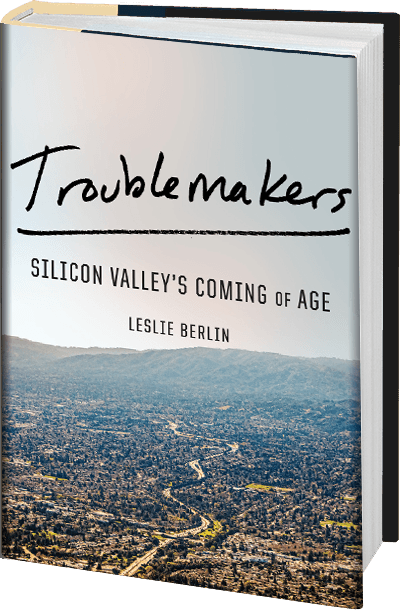
The richly told narrative of the Silicon Valley generation that launched five major high-tech industries in seven years, laying the foundation for today’s technology-driven world.
At a time when the five most valuable companies on the planet are high-tech firms and nearly half of Americans say they cannot live without their cell phones, Troublemakers reveals the untold story of how we got here. This is the gripping tale of seven exceptional men and women, pioneers of Silicon Valley in the 1970s and early 1980s. Together, they worked across generations, industries, and companies to bring technology from Pentagon offices and university laboratories to the rest of us. In doing so, they changed the world.
Here are the people and stories behind the birth of the Internet and the microprocessor, as well as Apple, Atari, Genentech, Xerox PARC, ROLM, ASK, and the iconic venture capital firms Sequoia Capital and Kleiner Perkins Caufield & Byers. In the space of only seven years and 35 miles, five major industries—personal computing, video games, biotechnology, modern venture capital, and advanced semiconductor logic—were born.
During these same years, the first ARPANET transmission came into a Stanford Research Institute lab, the university began licensing faculty innovations to businesses, and the Silicon Valley tech community began mobilizing to develop the lobbying clout and influence that have become critical components of American politics. In other words, these were the years when our modern innovation economy took shape.
Featured among well-known Silicon Valley innovators like Steve Jobs, Larry Ellison, Regis McKenna, and Don Valentine are Mike Markkula, the underappreciated chairman of Apple who owned one-third of the company; Bob Taylor, who kick-started the Arpanet and masterminded the personal computer; software entrepreneur Sandra Kurtzig, the first woman to take a technology company public; Bob Swanson, the co-founder of Genentech; Al Alcorn, the Atari engineer behind the first wildly successful video game; Fawn Alvarez, who rose from an assembler on a factory line to the executive suite; and Niels Reimers, the Stanford administrator who changed how university innovations reach the public. Together, these troublemakers rewrote the rules and invented the future.